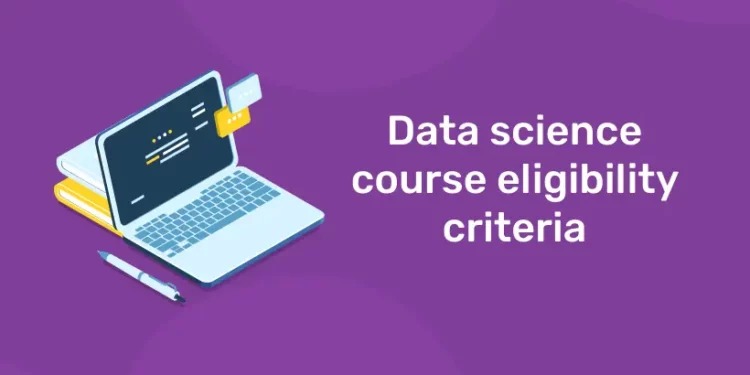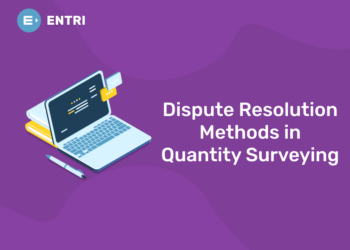Table of Contents
In the realm of interdisciplinary study, the field of data science can be found. When it comes to the processing of enormous amounts of data, the scientific method is what matters. In the context of mathematics, statistics, computer science, information science, and domain knowledge, the term “science of data” refers to a variety of scientific methods and theories that have been drawn from several different domains.
The following post will focus mostly on the numerous standards that must be met to be eligible to work as a data scientist in India. In addition to this, it will throw light on the many data scientist qualifications that are available in India as well as the several topics that are being covered in data science courses that are being given by a variety of universities.
What is a Data Science Course?
Data science programs are educational curricula or sets of courses that are aimed to teach individuals the skills and knowledge necessary to analyze, evaluate, and extract significant insights from data. These programs can be found in educational institutions. To manage big and complicated information, the area of data science brings together several disciplines, including statistics, computer science, mathematics, and domain expertise.
Data Science Course Eligibility
1: Which of the following algorithms is most suitable for classification tasks?
The course in data science is open to who? The field of data science has been experiencing a surge in demand in recent times. Students are beginning to look forward to studying the Data Science courses to meet the demand that has been placed on them. To maintain their competitive edge, businesses began to improve the skills of their employees. The demands of the industry were identified by several institutes and course providers, who then developed appropriate courses in the field of data science. Keeping this in mind, let’s have a look at some of the requirements that are necessary for data science in India.
When considering a Data Science course, candidates are typically expected to possess a foundational knowledge in statistics, analytics, and programming. While there are no stringent educational prerequisites for introductory courses, having a bachelor’s degree in a relevant field, such as computer science, mathematics, or engineering, is often advantageous. Proficiency in programming languages like Python or R, coupled with a strong understanding of statistical concepts, is crucial. Some programs may also consider work experience, particularly for more advanced or specialized courses.
Data Science Demand
Who is Eligible?
It is open to everyone interested in learning about data science, whether they are a novice or an experienced expert. In the field of data science, professionals in the fields of engineering, marketing, software development, and information technology can enroll in part-time or external programs. There is a minimal prerequisite for topics at the high school level for students who wish to enroll in regular classes in Data Science. In its most basic form, data science can be understood as a combination of ideas from the fields of mathematics, computer science, and statistics. Students ought to have a degree in one of the disciplines that fall under the STEM umbrella (science, technology, engineering, and mathematics are the domains).
Because this is one of the minimum qualifications for data scientists that any newcomer should possess, the eligibility requirements for a data scientist in India are as follows: anyone who comes from a STEM background is eligible. An extra advantage is that you have a background in computer programming from your high school years. Within the field of Data Science, students are instructed in both the fundamentals and more advanced ideas. Students develop expertise in the application of Data Science approaches in the real world by honing their subject knowledge in areas such as programming, machine learning, and statistics.
Data Science courses that are relevant to other fields of study, such as business studies, are open to students from other fields of study as well. In a similar vein, business professionals who have earned a fundamental degree in Business Administration, such as a Bachelor of Business Administration or a Master of Business Administration, are also qualified to pursue advanced studies in the field of Data Science. These professionals are employed in the information technology industry in the capacity of Executives. The majority of their responsibilities include the creation of CRM reports, MIS (Management Information System) reports, and DQA (Data Quality Assessment) reports connected to business operations.
After completing the 12th standard, students in India must demonstrate that they have a fundamental understanding of mathematics, computer science, and statistics to be eligible for studies in data science. Additionally, prospective students are required to have a total aggregate score on their high school score sheet that is at least fifty percent. Students who are interested in pursuing a Diploma in Data Science must possess a Bachelor of Engineering, Bachelor of Technology, Master of Computer Application, or Master of Science degree, with their primary studies consisting of either programming, computer science, or statistics. In addition to this, to be eligible for a Diploma in Data Science, the students in question must have a cumulative grade point average of fifty percent or higher.
An individual who is interested in pursuing a Master of Science in Data Science, Master of Technology in Data Science, or Master of Computer Application in Data Science must possess a Bachelor of Computer Applications, Bachelor of Engineering, Bachelor of Technology degree, or any other degree that is equivalent from a recognized university. In addition, prospective candidates should have a minimum cumulative score of fifty percent on their university score sheet, in addition to having a comprehensive understanding of mathematics and statistics. For individuals who are interested in pursuing a doctoral degree in data science, it is necessary to have achieved a minimum grade point average of 55% in postgraduate programming. It is expected that students who have a grade point average that is higher than the norm will be given greater consideration than other students.
Ready to take your data science skills to the next level? Sign up for a free demo today!
Data Science Curriculum
The vast majority of the courses that are designed are courses at the postgraduate and certificate levels for graduates. There have been several technical institutes and engineering colleges in India that have recently introduced degree-level programs in the field of data science and analytics.
Entri Data Science Course
Entri Elevate’s Data Science and Machine Learning course is a comprehensive journey that equips participants with the skills needed to excel in the dynamic field of technology. The program begins with a preparatory session in Module 0, introducing programming and data science fundamentals. Participants delve into the intricacies of programming, understanding concepts such as compilers, interpreters, source code, machine code, algorithms, and editors. Simultaneously, the module sheds light on the world of data science, covering job roles, terminologies, applications, and workflows.
Moving on to Module 1, participants are immersed in Python programming. The module covers the history and features of Python, along with installation using PyCharm. Python basics, conditional and looping statements, data structures, functions, file handling, and object-oriented programming are comprehensively explored. Additionally, participants gain hands-on experience with Pandas and NumPy for data manipulation and visualization using Matplotlib and Seaborn.
In Module 2, the focus shifts to MySQL, where participants learn the intricacies of database management, SQL, and data manipulation. The practical aspect is emphasized through a project involving the creation of a sports complex booking database, enhancing real-world application skills.
Module 3 introduces participants to PowerBI, covering its installation, configuration, and data modeling capabilities. The module extensively explores data visualization best practices and the creation of interactive reports and dashboards. Participants culminate their learning in this module by undertaking a project centered on financial performance analysis, optimizing reporting for a firm’s financial health and productivity.
Module 4 delves into probability, statistics, and machine learning. Participants grasp the foundations of probability, conditional probability, and various statistical tests. The module progresses into machine learning concepts, algorithms, and data preprocessing techniques. Participants apply their knowledge through a project involving dataset handling, label encoding, and scaling methods.
Module 5, the final module, propels participants into the realm of deep learning. Covering neural networks, back-propagation, activation functions, and advanced architectures like Convolutional Neural Networks (CNNs) and Recurrent Neural Networks (RNNs), participants gain a profound understanding of deep learning basics. The module concludes with a hands-on project, requiring the creation of a deep network model using CNN and the calculation of accuracy and loss values.
Entri Elevate’s Data Science and Machine Learning course stands out for its hands-on approach, blending theoretical knowledge with practical application. The carefully curated curriculum ensures participants develop a holistic skill set, preparing them for the demands of the ever-evolving technology landscape. This course is a transformative experience, guiding individuals toward becoming adept professionals in the field of data science and machine learning.
Subjects and Skills
In India, the following are the requirements that are required for applicants to be considered for admission to a data science course:
A degree is a high school diploma from a STEM-related program. No prior knowledge of coding is required.
Mathematics is the subject that serves as the foundation for machine learning, data science, and data analysis. It is the subject that is responsible for the creation of models through the processing of data generated by mathematical algorithms. Mathematics encompasses a wide range of subjects, including but not limited to arithmetic, algebra, calculus, differentiation, probability, statistics, geometry, and areas related to these subjects.
Understanding the basics of statistics will assist you in comprehending the data, conducting an analysis of the data, and drawing conclusions based on the data. Accessing and retrieving data, as well as doing visualization and presentation using R and Tableau, is what is meant by “data visualization.”
For exploratory data analysis, you will investigate Excel and databases to extract valuable insights from the pool of data and to gain knowledge from the features and properties of the data. The process of formulating and testing hypotheses that are then implemented in case studies to solve real-world business challenges is referred to as hypothesis testing. Programming Languages Even though coding is not a requirement for enrollment in DS classes, it is strongly recommended that students have a working knowledge of programming languages such as Java, Python, Scala, or their comparable software. In the field of database management, having a solid understanding of databases is extremely desirable. There is nothing else that a person has to be concerned about in terms of eligibility for the position of data scientist in India if they can master all of the abilities that were mentioned above.
The Science Behind Data
The discipline of Data Science focuses on the processes that involve methods, algorithms, and systems to extract information and intelligence from a collection of data that is both structured and unstructured. The field of data science provides support for some data-driven endeavors, including Data Mining, Big Data, Machine Learning, and Artificial Intelligence Development. To provide a more in-depth explanation, the term “Data Science” can be understood as a concept that integrates statistical analysis, data analysis, and various approaches to examine and make sense of real-world phenomena with the assistance of data.
Data Science Syllabus
A course curriculum for Data Science was developed by educators to prepare students for the workforce by providing them with the knowledge necessary to use DS concepts in the workplace. Additionally, the curriculum is modified to correspond with the requirements of the sector. Specific topics, such as open-source tools, libraries, databases, SQL, Python, R, data visualization, data analysis, and machine learning, are the focal points of the course outline. Within the context of the course, the techniques in data handling are followed by the centric idea. These models are constructed using algorithms that have been methodically built.
Major Tools and Programming Languages that are Data Science Requirements
Python is a language that is interpreted and object-oriented. R is a programming language. Data structures, dynamic typing (also known as runtime type checking), and binding are all built-in for this system. It is simple to read and understand the syntax of Python. Free to use are Python and all of its libraries. Programmers can write more efficient code when using Python. Examples of libraries that are included in it include NumPy, Pandas, Scikit, Keras, Tensorflow, Matplotlib, and others. Using Jupyter Notebook, an online application that allows users to share live code, data science explanations are made easier. R is a computer language that can be used for statistics, computation, and graphics. Statistical testing, clustering, and linear and nonlinear modeling are some of the features that are included in R. The ease with which R can plot mathematical notations and formulas is one of its distinguishing features. A data scientist who is proficient in either Python or R is a qualification that many firms look for in potential candidates.
Mathematics and Statistics: The algorithms that are used in machine learning are strongly dependent on mathematics and statistics. Having an understanding of the processes that underpin the various Machine Learning algorithms might assist you in selecting the appropriate one for the task at hand.
The foundation of an artificial intelligence model is comprised of algorithms, namely those that are used for machine learning and deep learning. This is one of the most important requirements for a data scientist. K-means clustering, Support Vector Machines, and Random Forests are just a few examples.
Data visualizations: Users of data science and data analytics software may profit from data visualization by obtaining insight into the huge volumes of data they have access to. This can be accomplished through the use of data visualization applications. In the field of data science, one of the numerous requirements is the visualization of data. They would benefit from having the ability to identify new patterns and faults in the data of the organization. Users are better able to concentrate their attention on areas that provide indications of future difficulties or advancements when they have a deeper comprehension of these patterns. One example of the many data visualization programs that are currently available is Tableau. The fact that Tableau enables users to perform data analysis in a very short length of time is one of the reasons for its widespread popularity.
Dashboards and spreadsheets are two additional applications that may be developed using the visualizations. The use of Tableau gives users the ability to design dashboards that offer insights that can be put into action and help a company’s operations advance.
Most Jobs Expect a DS Professional to Have the Following Skills, these are the basic requirements for a data scientist –
- A good grade and understanding of Statistics, Mathematics, Computer fundamentals, and Machine Learning.
- Expertise in one or more of the programming languages, preferably R or Python.
- Thorough understanding of databases.
- Exposure to Big Data tools, like Hadoop, Spark, and MapReduce.
- Experience in data wrangling, data cleaning, mining, visualization, and reporting tools.
Top Data Science Skills to Learn
| Top Data Science Skills to Learn | ||
| 1 | Data Analysis Course | Inferential Statistics Courses |
| 2 | Hypothesis Testing Programs | Logistic Regression Courses |
| 3 | Linear Regression Courses | Linear Algebra for Analysis |
In India, we have gained an understanding of some of the fundamental qualifications required for a data scientist. On the other hand, what are the subjects that are taught in classes that focus on data science and data analytics? The answer to this question can be found in the list that is presented below. Four primary components are included in the data science courses that are provided to students at almost every major university. These include the following:
Big Data
Getting students interested in Big Data methodologies and strategies is the primary focus of this particular topical discussion. The initial phase of Big Data is composed of a variety of unstructured data that are collected in the form of videos, images, messages, postings, and other forms of communication. The data that was previously unstructured is subsequently converted into data that is organized.
Machine Learning
Within the context of this section of the Data science curriculum, students are allowed to acquire knowledge of a wide range of mathematical models and methods. Providing students with assistance in better adapting to day-to-day developments and facing the obstacles that come with working for an organization is the primary goal.
Artificial Intelligence
After the data has been gathered and accumulated, businesses need to be able to understand and show the data appropriately. The application of machine learning comes into play at this point. You will not only be able to gain a better grasp of the market side of the process, but you will also be able to recognize trends and then proceed with your business by those patterns.
In the field of data science, what are the most important areas?
The field of data science comprises a vast variety of distinct domains and abilities, all of which are geared towards the extraction of knowledge and insights from data. The following are some of the most important aspects of the data science course:
1. Statistics and the Probability of Events
When it comes to interpreting data distributions, drawing inferences, and constructing models, having a fundamental understanding of statistics and probability theory is necessary.
2. Cleaning and pre-processing of the input data
Before analysis can be performed, it is frequently necessary to clean and pre-process the data to deal with missing values, outliers, and inconsistencies. This helps to ensure that the results are correct and dependable.
3. In-depth analysis and visualization of the data
In addition to assisting in the formation of hypotheses and gaining a knowledge of the underlying structure of the data, the exploration of data through visualisations assists in the identification of patterns, trends, and linkages.
4. Learning by Machines
The creation of algorithms that enable computers to see patterns in data and then use that information to make predictions or judgements is a fundamental field of study. Supervised learning, unsupervised learning, and reinforcement learning are all subfields of learning theory.
5. Engineering of the Features
Within the context of improving the performance of machine learning models, one of the most important steps is selecting, converting, and producing relevant features from raw data.
6. The Selection of Models and Their Evaluation
Important responsibilities include selecting the appropriate model for a certain problem and assessing the performance of that model by employing metrics such as accuracy, precision, recall, F1-score, and so on.
7.Seventh, Deep Learning
A subfield of machine learning that focuses on neural networks and intricate hierarchical representations. Artificial neural networks are frequently utilised for tasks such as image identification, natural language processing, and other similar endeavours.
Ready to take your data science skills to the next level? Sign up for a free demo today!
8 Natural Language Processing (also known as NLP)
It is useful for a wide variety of applications, including sentiment analysis and language translation, as it enables machines to comprehend, explain, and produce human language.
9. Computer Eyesight (CV)
Involves the creation of algorithms that supply computers with the ability to read and comprehend visual information from the outside environment. These algorithms are frequently utilised in activities such as picture and video analysis.
10.Analysis of Time Series
Data acquired over a period of time is the focus of this topic, which is frequently utilised in forecasting and trend analysis. In addition to other methods, it makes use of techniques such as autoregressive integrated moving average (ARIMA).
11. Big Data Technologies
Tools such as Hadoop, Spark, and distributed computing frameworks for efficiently managing and analysing massive datasets are becoming increasingly vital as the amount of data continues to grow at an exponential rate.
12. Data Ethics and Privacy
Due to the fact that data science entails the handling of sensitive information, it is vital to have an awareness of ethical considerations and to ensure that data privacy is maintained.
13. Expertise, in the Domain
When it comes to framing problems, analysing results, and making educated decisions based on data insights, having domain-specific knowledge is absolutely necessary.
14. Testing using A/B
In order to determine which version of a website page or app would produce the best outcomes in terms of user engagement or other metrics, it is utilised to compare and contrast the many versions of the document or application.
15. Communication and the Art of Storytelling with Data
In order to drive decision-making that is based on data, it is essential to have the ability to communicate complicated insights to stakeholders who are not technically oriented in a way that is simple and easy to understand.
Ready to take your data science skills to the next level? Sign up for a free demo today!
16.Data Governance and Management
The process of developing methods, policies, and standards for managing data throughout its lifecycle in order to guarantee its quality, security, and compliance is referred to as data management.
17. The Selection of Features and the Method of Dimensionality Reduction
Methods that can be used to determine which characteristics are the most important and cut down on the total number of features in high-dimensional data, which ultimately results in more effective models.
These domains frequently overlap and complement one another in various ways. You may need to go more thoroughly into certain areas than others, depending on the particular problem that you are working on and the position that you play in the process of working with data science.
Conclusion
When it comes to the Data Science stream, prospective students are currently in a position to decide on which course to enroll in. If you aspire to become a data scientist in India, it’s important to evaluate your capabilities first, and then choose classes that best suit you. Offering a variety of Data Science courses, Entri Elevate’s Data Science course aims to transform qualified individuals into professionals prepared to work in the field
While prerequisites for Data Science courses vary, a solid foundation in statistics, analytics, and programming is universally valued. Prospective students should carefully review the specific requirements of their chosen course and institution to ensure they meet the eligibility criteria, considering both general requirements and those specific to prestigious institutions like IITs and IIMs.
FAQs
Q1.Does data science require coding?
Ans: Yes, coding is a necessary ability for data scientists to have. To handle and analyse big datasets, they must be fluent in programming languages like Python, R, and SQL. However, depending on the particular job and industry, different levels of coding expertise may be needed.
Q2. Is a career in data science difficult?
Ans: Entering the field of data science is not inherently difficult, though it may take some time and commitment. Anyone may become a successful data scientist with the correct attitude, training, and experience. It’s critical to begin by gaining the required knowledge and resources, developing a portfolio, and establishing connections with other professionals in the field.
Q3. How can I go into data science if I have no prior experience?
Ans: To start a career in data science without any prior expertise, there are multiple options. Participating in data science competitions, networking with industry people, taking online classes or boot camps, and working on personal projects to develop a portfolio are a few choices.
Q4. What qualifications are required to become a data scientist?
Ans: While there is no single path to becoming a data scientist, the majority of professionals in this industry have a bachelor’s degree in a related field such as computer science, statistics, or mathematics. Furthermore, a lot of data scientists hold PhDs or Masters degrees, among other advanced degrees. But because to recent adjustments, businesses are now more interested in considering capabilities than just credentials.
| Explore These High Demand Courses | |
| Data Science And Machine Learning Course | Python Programming Course |










